You’ve got the perfect adorable puppy! He’d be a great travel buddy, except for one thing … he gets sick riding in the car. But don’t give up just yet! There’s a lot you can do to help with puppy motion sickness.
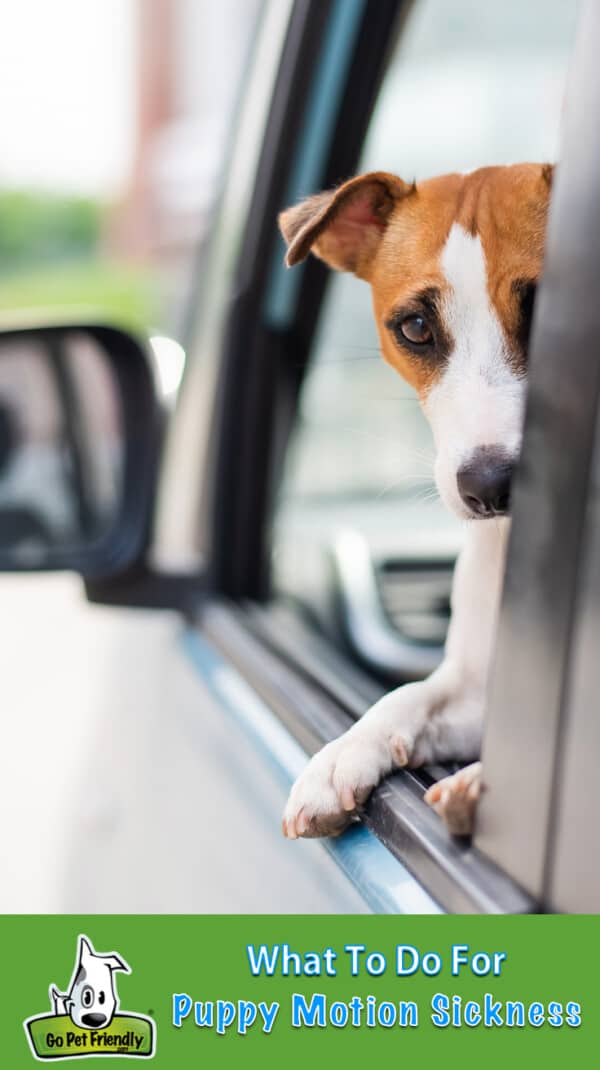
Why Do Puppies Get Motion Sickness?
Nobody knows for sure why dogs get carsick. But then nobody knows for sure why people get carsick either! The most common theory is that the brain is receiving mixed signals – the vestibular movement-sensing inner ear says you’re moving, while the eyes say you’re not.
What we do know is that puppies and young dogs tend to experience motion sickness more often than adult dogs. So, it’s possible this is something your puppy will outgrow as his vestibular system fully develops.
Until then, you need to take care that his motion sickness doesn’t turn into travel anxiety. If your puppy begins to associate feeling rotten with being in the car, he could develop an aversion to traveling, even if he doesn’t get carsick anymore.
READ MORE ⇒ Why Does My Dog Pant In The Car?
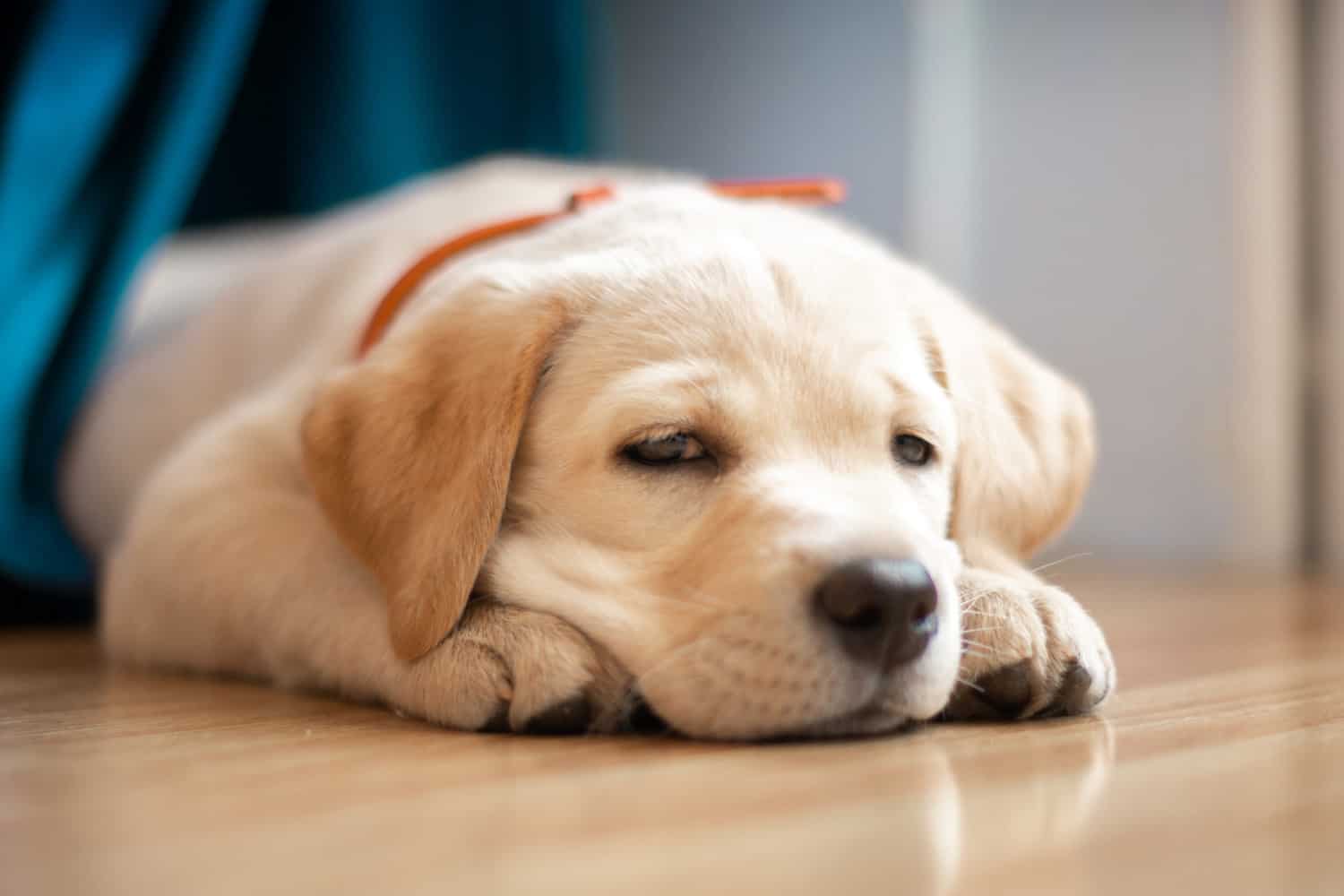
How Do You Know If It’s Motion Sickness?
Motion sickness comes with some pretty recognizable signs, so it’s not too difficult to figure out. If your puppy is showing these symptoms, he could be carsick:
- Diarrhea
- Excessive drooling
- Hunched back or other stiff body posture
- Lethargy
- Lip-licking or yawning
- Lips pulled back
- Pacing
- Panting
- Swallowing frequently
- Vomiting (in some, but not all, cases)
- Whining
- Wide eyes
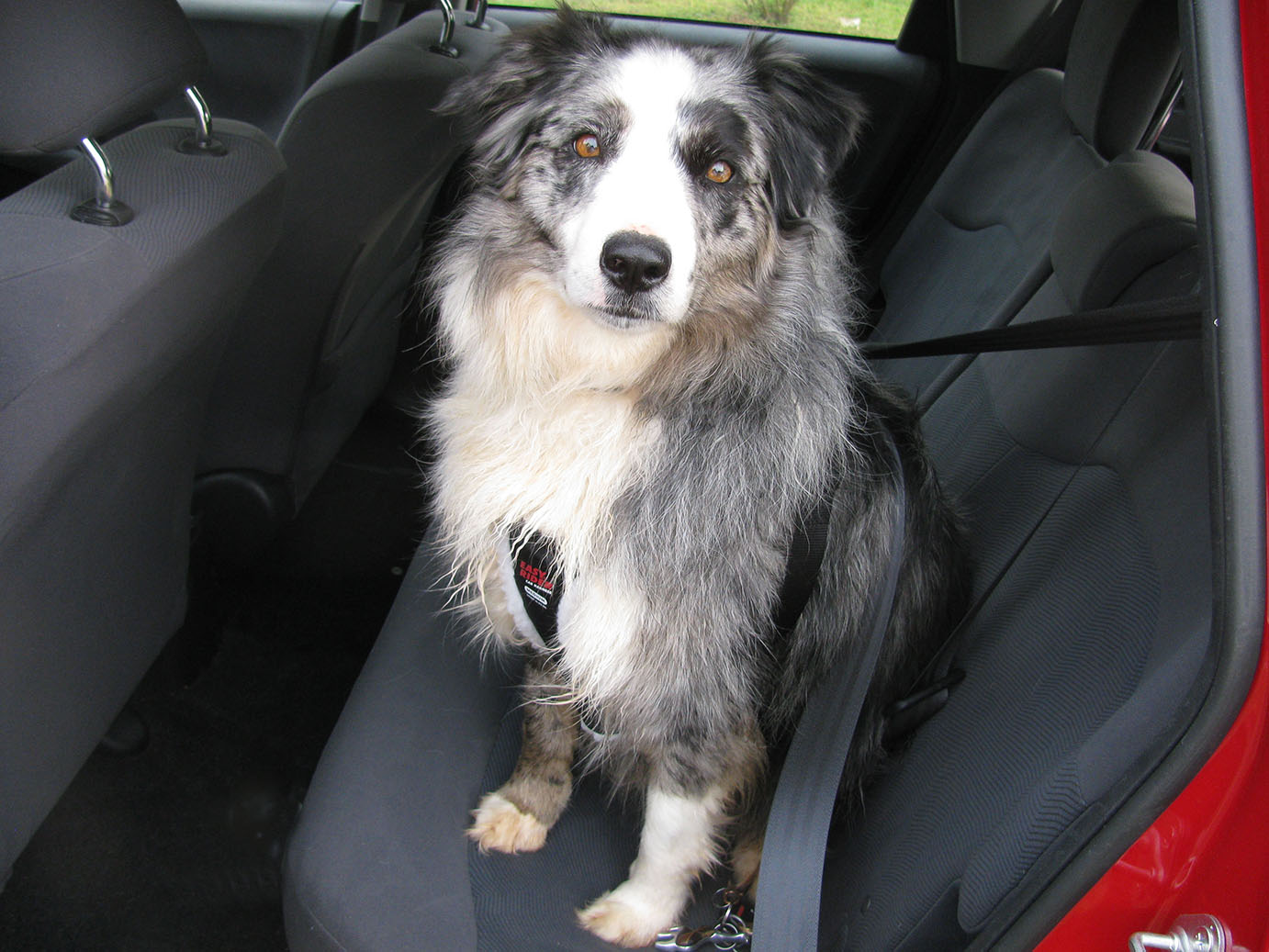
If you suspect your puppy has motion sickness, it’s best to start with a visit to the vet. This can help eliminate any underlying medical issues that could be mimicking the signs of motion sickness, like an ear infection or high blood pressure.
When you’ve ruled out other causes, talk with your veterinarian about herbal and pharmaceutical medications and supplements to help your pup. There are some great options available that will relieve the symptoms of motion sickness, giving your puppy time to outgrow the condition without developing travel anxiety.
READ MORE ⇒ My Dog Hates The Car – Now What?
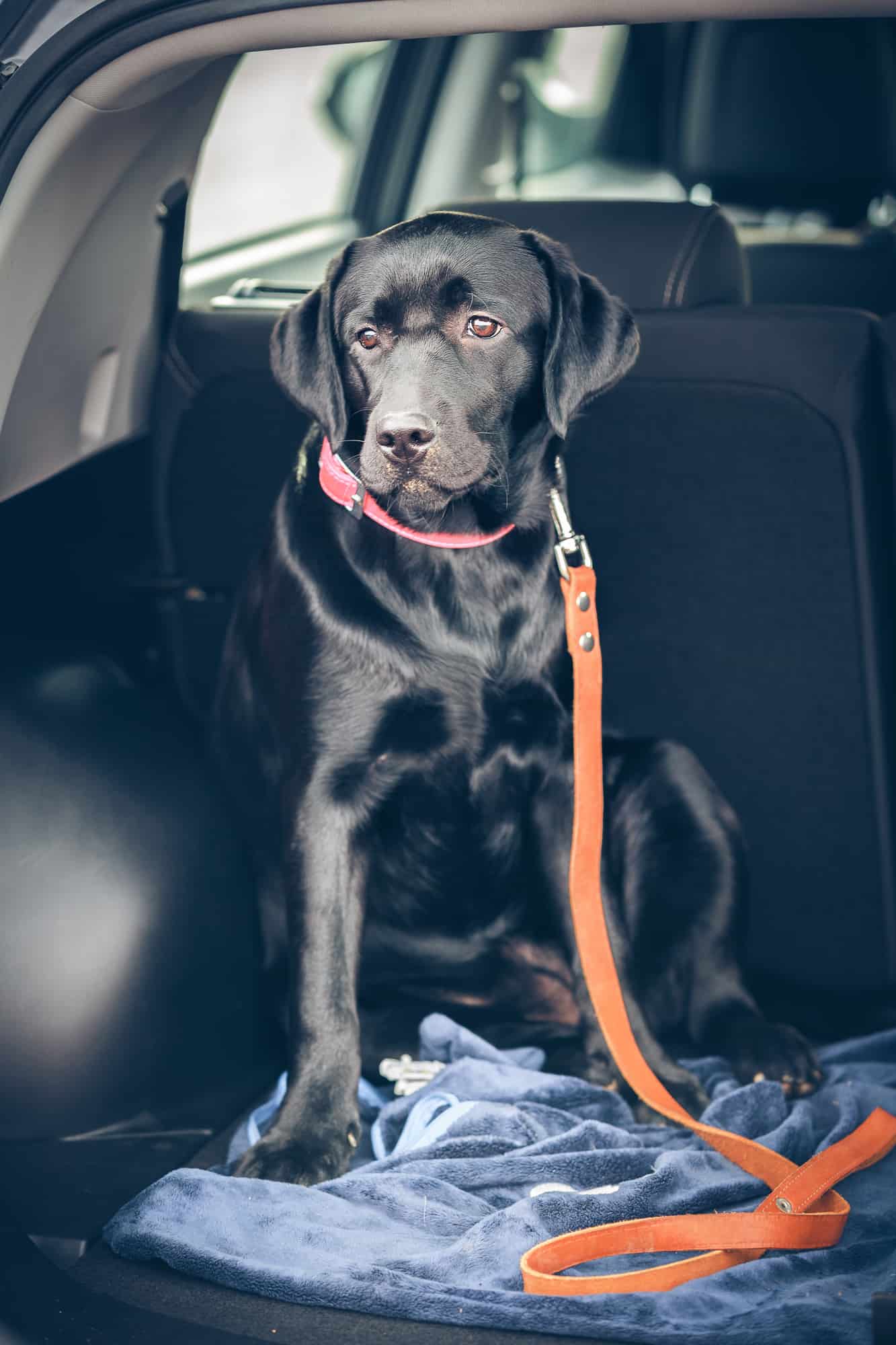
What Can You Do To Help?
There are some things you can do to help relieve your puppy’s motion sickness:
- Try traveling when your puppy has an empty stomach. If that’s not working, a little bit of food or a couple treats might decrease the chance he’ll get nauseous. A little water is good, too — staying hydrated is important after all.
- Take your pup for a nice walk before you leave to help him relax in the car. Anxiety vests and jackets for dogs use gentle compression or swaddle your puppy and can also help him stay calm while you travel.
- Arrange you puppy so he’s facing the direction of travel. Dr. Jennifer Jones Shults, DVM, CCRT, of the Veterinary Rehabilitation and Pain Management Hospital in Cary, North Carolina says, “The ocular center in a puppy’s brain hasn’t really developed enough for him to understand going backward; they understand going forward.”
- Roll the windows down a bit. Equalizing the pressure and getting fresh air helps some dogs feel better.
- If your puppy isn’t big enough to see out the windows, try a travel booster seat, which can help him feel stable and allow him to see out the window.
- If your puppy has been getting carsick while looking out the windows, try blocking his view of the outdoors with a covered crate, by putting sun shades over the windows closest to him, or by stretching a fitted sheet over the front and rear headrests to create a “dog fort” in the backseat.
- Make frequent stops, not just let your puppy sniff around and stretch his legs, but to give his brain a break from the potentially conflicting sensory signals that could be causing his motion sickness.
- Start with short, frequent trips to happy destinations, slowly building his tolerance and enjoyment of being in the car.
- If your pup does get carsick, stay calm. Upsetting you could easily add to your puppy’s anxiety.
It takes a little extra patience and understanding, but with your help, your puppy will likely grow into a dog who can’t wait to hear the question, “Wanna go for a ride?”
READ MORE ⇒ Best Crash-Tested Dog Harnesses For Traveling By Car
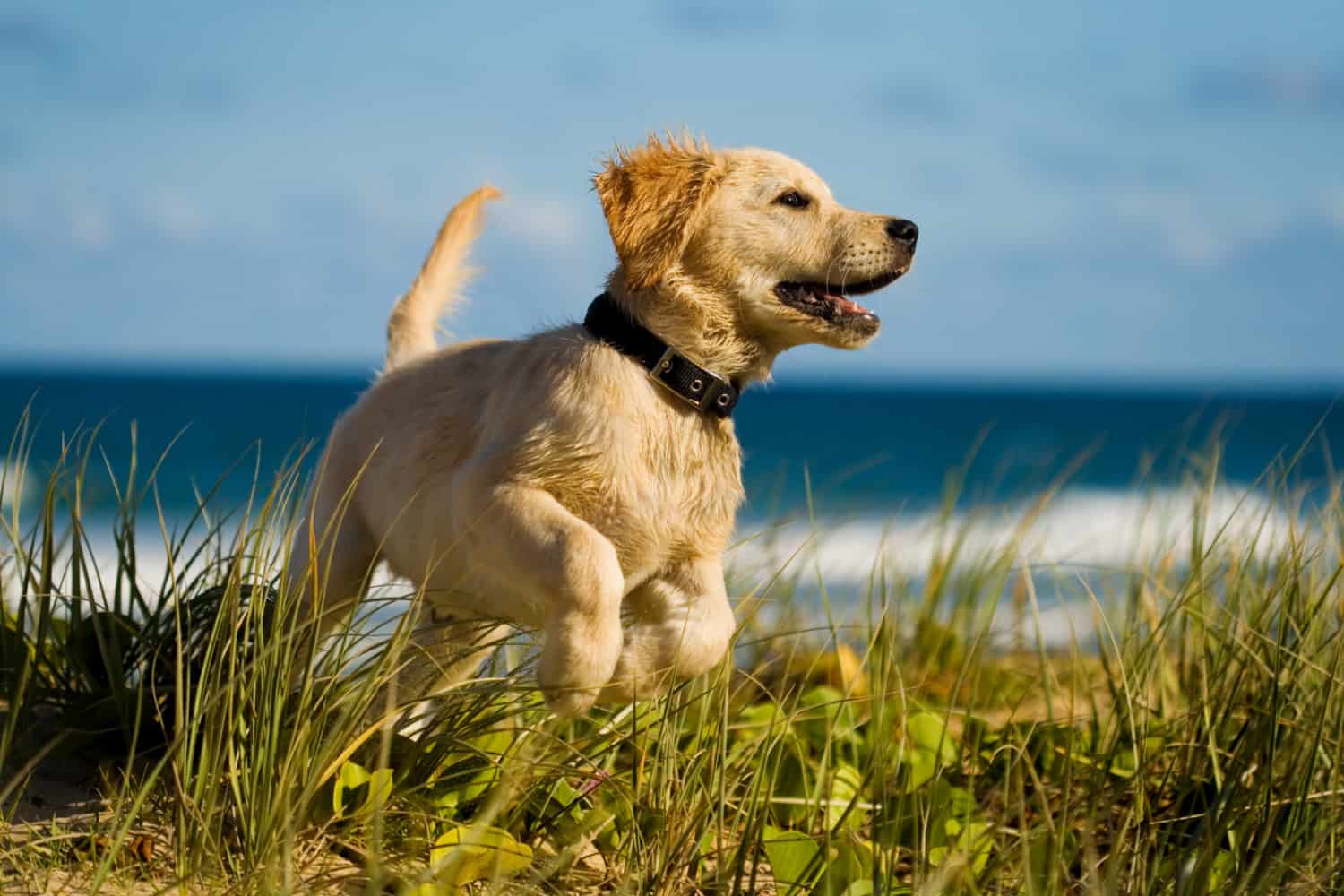
What If Your Dog Still Gets Motion Sickness?
Having a dog that gets sick in the car doesn’t mean you won’t be able to enjoy vacations together. Here are some tips to make your trips a success for the whole family:
- Visit walkable, pet friendly cities that are easy to navigate on foot and have plenty of dog friendly restaurants and activities.
- Opt for a dog friendly resort, and you’ll never want to leave the property! Look for amenities like hiking trails, water sports, and disc golf courses, as well as dog friendly dining options.
- Beach bums know that there’s nothing better than grabbing a book, an umbrella, and a towel, and spending every day in the sand and surf. Locate the right beach, and your dog will be able to join you!
- Staycations don’t have to be a compromise. If you discover that your dog truly cannot ride in the car for any length of time without getting ill, find the closest pet friendly hotel to your home, tell everyone you’re going away, and spend a few days spoiling yourself and your best buddy with long walks, lazy naps, room service, and all-night movie marathons. It may not cover a lot of miles, but it will be a trip you’ll never forget.
READ MORE ⇒ Planning A Pet Friendly Road Trip
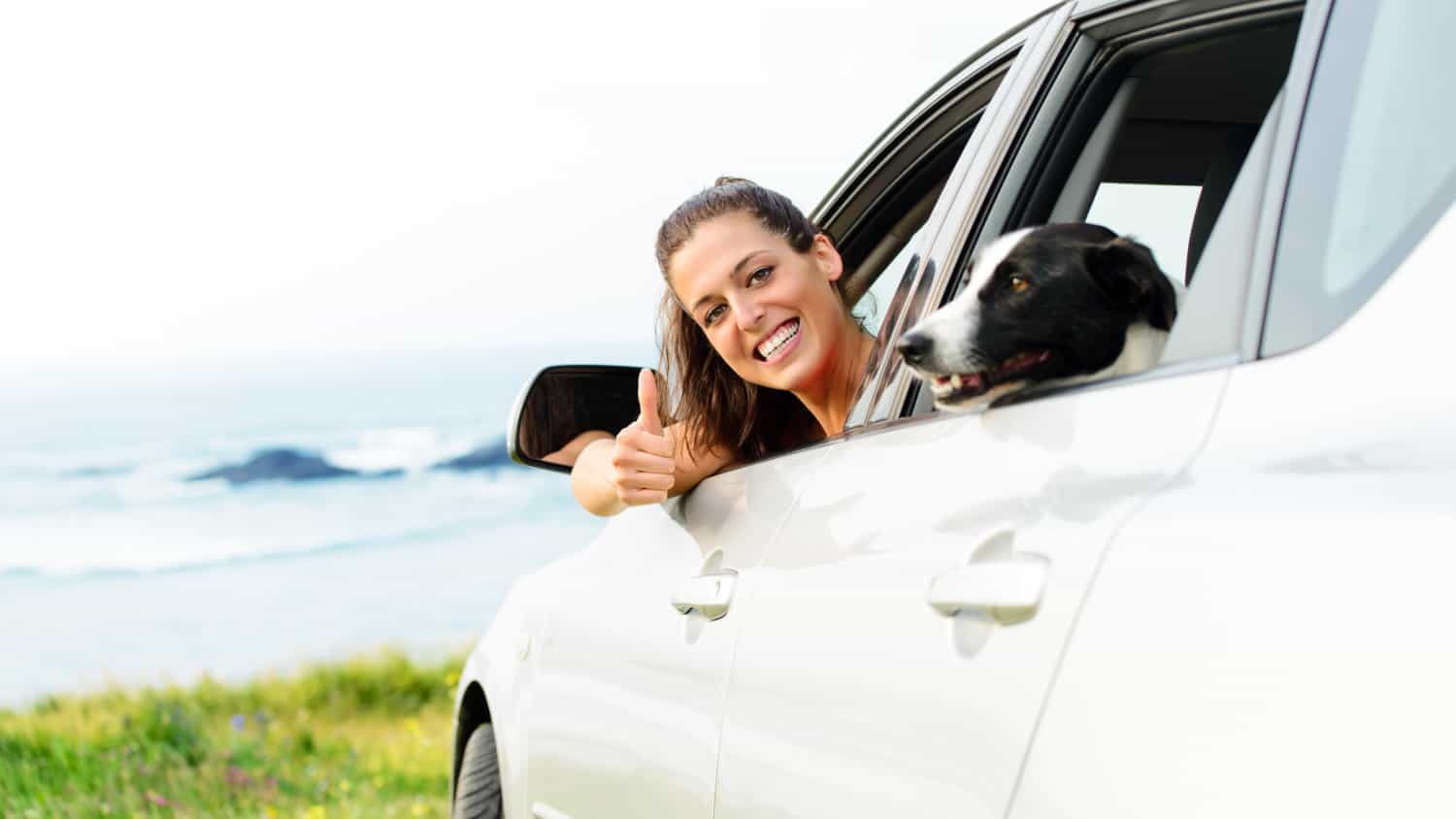
It can be disappointing to discover your puppy or dog has “car trouble,” but understanding the issue is an important step in finding relief. And while going on a long-distance road trip might not be in your dog’s future, it doesn’t mean you can’t enjoy fantastic adventures together.
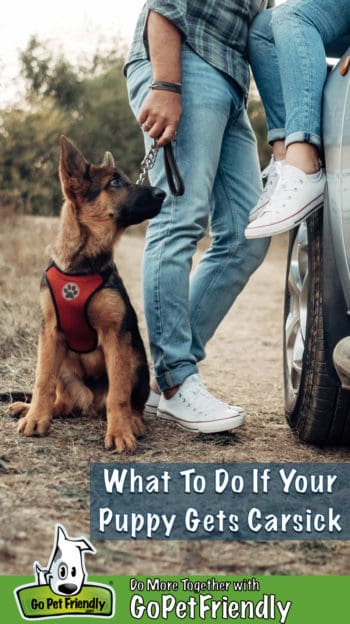
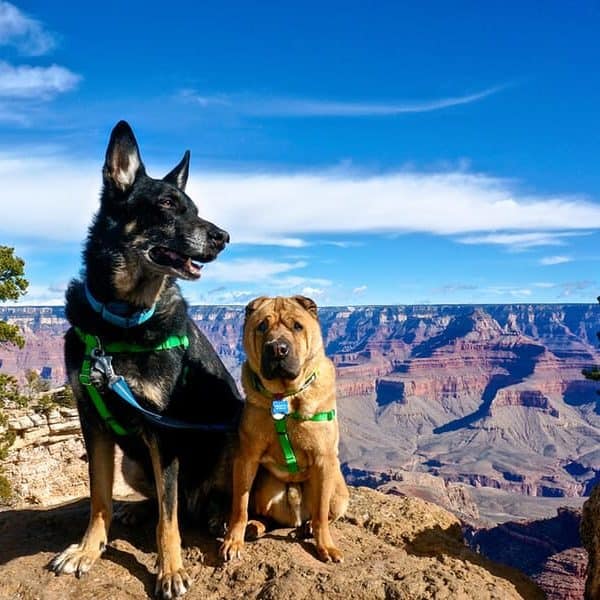
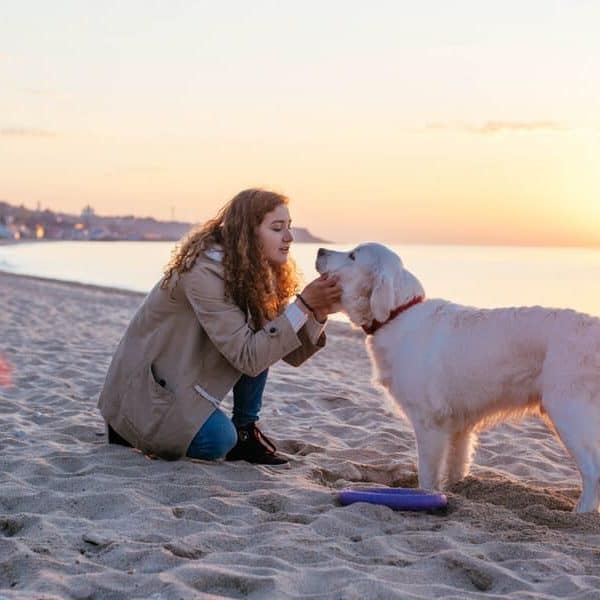
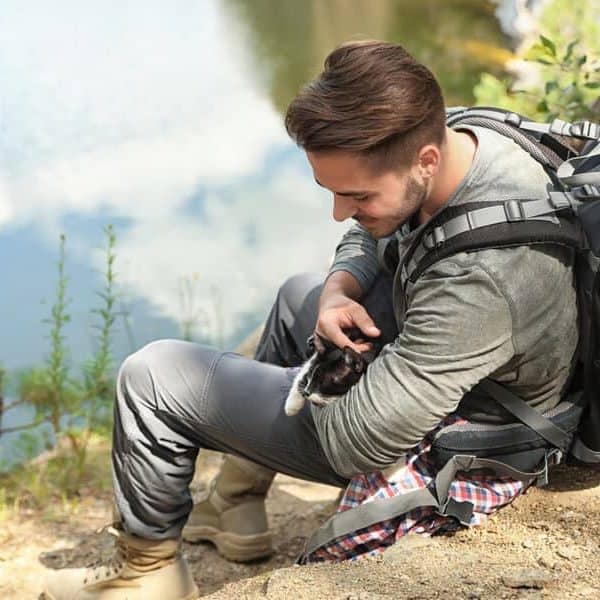
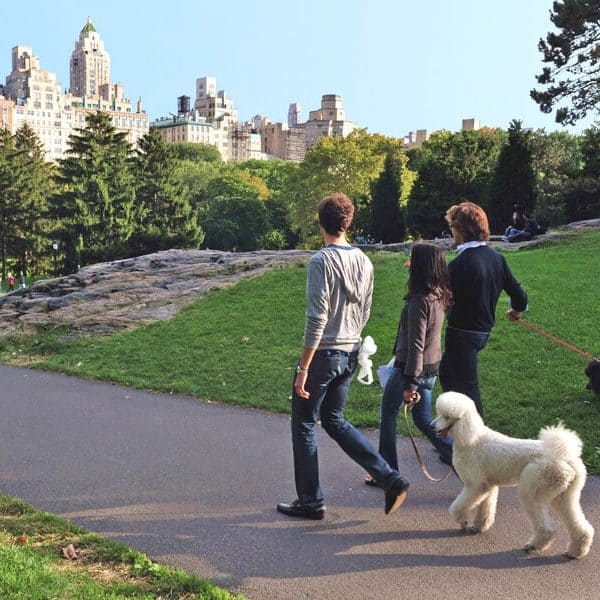
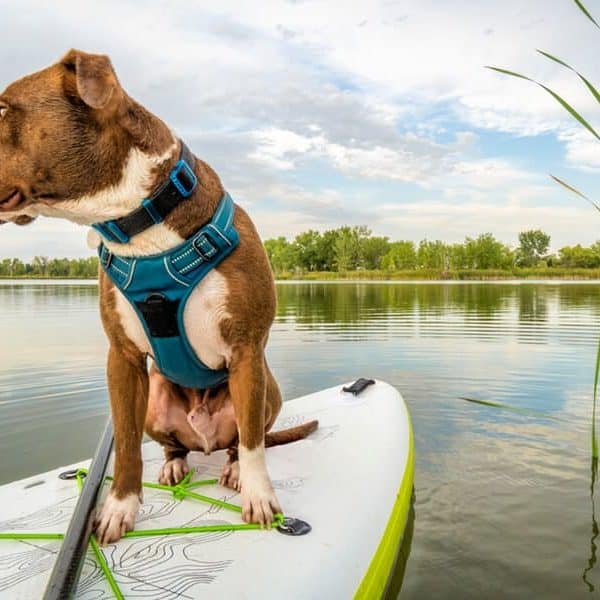
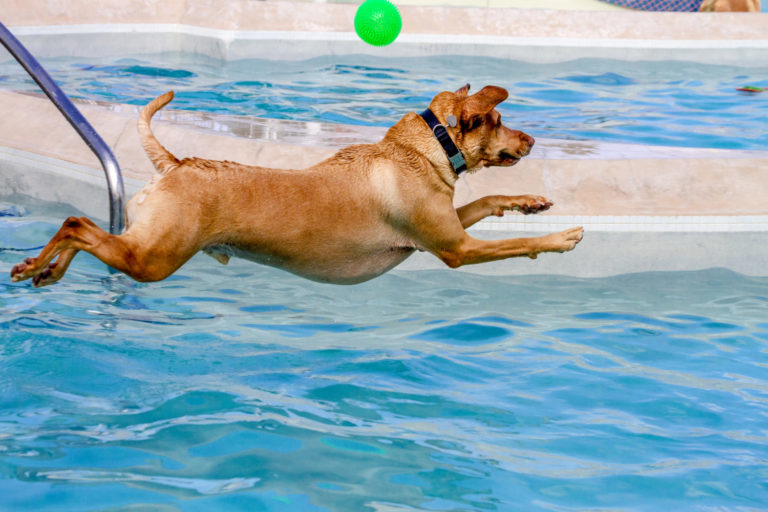
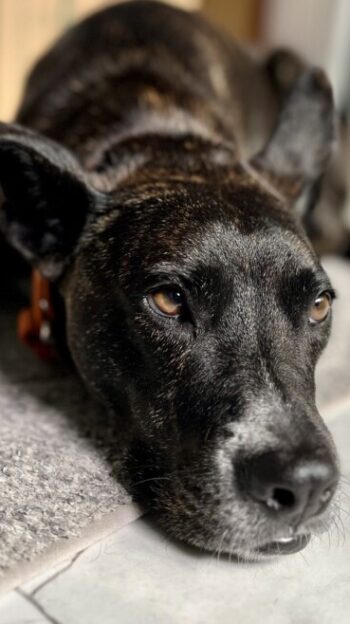
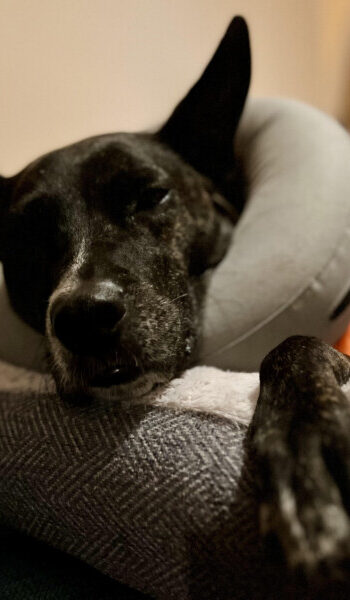
Very helpful my pup was drooling a ton and trys but struggles to fully see outside and i never associated either as triggers warnings that she might get sick, great to know about the puppy fort too i love me a good life hack. Thank you author :)
You’re so welcome! I hope the information helps your pup. Good luck!
These tips are so timely and we recently took a 3.5 hour trip to the mountains and our german shepherd was yawning and yelping like they were excited. I thought maybe she thought we were going to the park or just excited. It turned out she was getting a little car sick from the motion of the mountains. I like your suggestion to take longer potty breaks and let them walk around. I think the motion sickness was setting off her stomach as she was drinking more water than usual. I really appreciate your tips for our next car trip adventure.
Cheers!
Lulu
I’m so glad we could help, Lulu. My stomach also gets a little upset driving through the mountains, so I understand. And I wish you all many happy adventures together!
My pup recently started experiencing motion sickness and I’m so glad to have found this post! I was surprised to learn that feeding your pet light snacks can help ease their stomachs and reduce the feelings of nausea they experience while traveling. From my pup experience, I’ve found that being prepared for car rides is key. Make sure you have plenty of water and healthy snacks available, along with a few toys that can help keep your pup distracted during the ride.
Excellent tips! Thanks for sharing, Mary Joy. And we wish you and your pup many, many happy adventures together!